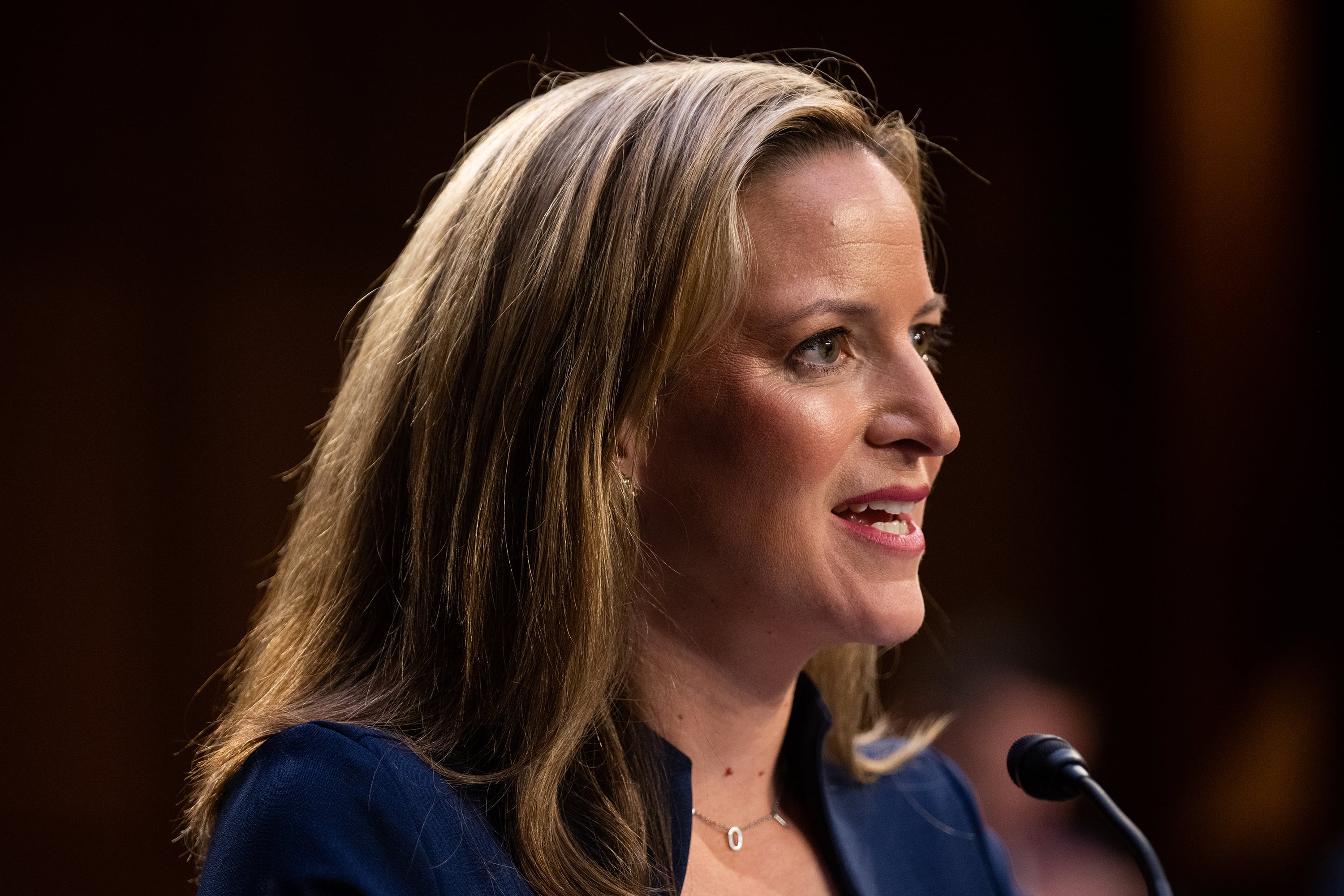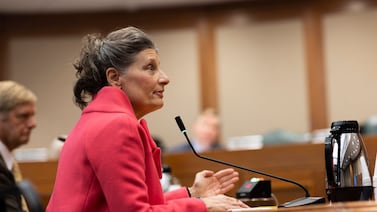Votebeat is a nonprofit news organization reporting on voting access and election administration across the U.S. Sign up for Votebeat Michigan’s free newsletter here.
Corrected, Sep. 10, 4:30 p.m.: This story has been corrected to include new information from Republican leaders about funds for election support in their budget proposal. They told Votebeat Wednesday that under their proposal, the funds would still be available to support local election officials, but not as part of the Department of State’s budget.
Election officials said this week that they’re concerned that Michigan House Republicans put state election support for local governments on the chopping block in their proposed budget for the coming fiscal year. But GOP leaders say their proposal doesn’t put all funds at risk.
The Department of State’s funding for local election support is a relatively small portion of a huge budget battle that may yet lead to a shutdown of Michigan’s government next month. But in a state that has over 1,600 election officials and dozens of local elections scheduled for November, it represents a critical resource.
One major change in the GOP proposal would be the removal of more than $10 million allocated to the department’s Election Administration Support Fund, which helps to fund early voting and absentee ballots at the local level.
GOP leaders told Votebeat on Wednesday that under their proposal, those funds would still be available to support local election officials, but not as part of the Department of State’s budget. Instead, it would move to the Treasury Department, where the money would be distributed much in the way local revenue sharing checks are.
In the 2024-25 fiscal year, the Department of State’s budget was about $292 million. Proposals from the Senate, which is controlled by Democrats, and Gov. Gretchen Whitmer’s office would both boost it to about $296.5 million, while the latest budget proposed by House Republicans would cut it down to $222.5 million.
GOP says the shift would make disbursements more efficient
The election support money, Secretary of State Jocelyn Benson told Votebeat on Monday, is intended to help clerks navigate the expensive voting rights expansions voters approved in 2018 and 2022. That includes additional staffing for the now-mandatory nine days of early voting in federal and statewide elections, as well as postage for the growing number of absentee ballots.
She added that the Bureau of Elections would be cut by a third under the House’s overall plan, limiting support for tasks such as testing electronic pollbooks and securing ballot drop boxes. Those cuts would ultimately hurt local clerks, she said, because that staff provides critical support for security of elections as well as how smoothly they run.
In a news release Monday, Benson had warned that the budget proposal would force layoffs of more than 400 employees across her department, and the closing of 10% of branch offices where residents get driver’s licenses.
She told Votebeat that she was working with the governor’s office on counterproposals that would reduce her department’s budget overall, as House leaders want, without “creating a lot of hurt to our elections, our department and to the citizens of Michigan.”
Republicans told Votebeat Wednesday that keeping the money with the Treasury Department, where it originates, would cut down on bureaucratic delays.
Rep. Ann Bollin, the chair of the House Appropriations Committee and a Republican from Brighton Township, said in a statement that local election officials told her funds were not “being released quickly or efficiently” from the Department of State.
In a press conference last week, Republicans argued that their proposals targeted waste. Rep. Bollin said that the budget proposed in the House “targets all the priorities of people across Michigan.”
Contingency plans for a government shutdown
If leaders can’t reach a consensus by Oct. 1, the start of the new fiscal year, the state government is likely to shut down. That could mean that state officials aren’t able to fully support local clerks during their upcoming 2025 elections — including Detroit’s mayoral race, as well as council elections, millages, and ballot proposals around the state.
Benson said her department has a plan that would allow it to keep “some of the lights on, if not all of them” during a shutdown, but noted that state support for local elections would be limited if a shutdown encroached on the November elections.
She added that most major administrative decisions for November’s local elections have already been made and funded locally.
Calhoun County Clerk Kimberly Hinkley said the prospect of a full shutdown doesn’t scare her much. Her county, which includes Battle Creek, has only three elections scheduled in November — a local government millage in Tekonsha (population about 650) and two school millages. Costs for those elections largely fall back on the entities that requested them, she said.
Clerks will get the work done, Hinkley added, but for now, they are waiting for decisions out of Lansing.
“Revenue for all of us across the board, whether it’s the county or local cities or townships, we’re all concerned about what these cuts may look like for our services,” Hinkley said.
Hayley Harding is a reporter for Votebeat based in Michigan. Contact Hayley at hharding@votebeat.org.




